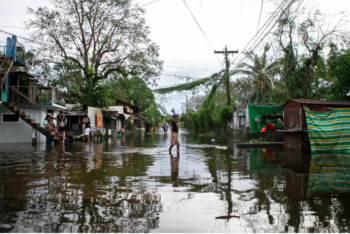Five years ago countries around the world agreed on a plan to tackle the climate crisis. As a result, the Paris Agreement was born, and an era of international cooperation to deliver climate action began.
The Paris Agreement has already delivered concrete results, and various national, regional and international decisions and initiatives since then have made direct reference to the climate accord.
It is important to note that the Paris Agreement itself will not deliver the results that are urgently needed to stop the climate crisis. There is no top-down mechanism that requires countries to take the necessary action, nor is there a compliance system to ensure that the broad and ambitious goals of the Paris Agreement are met.
Despite this, the Paris Agreement’s, Ambition Mechanism, has the potential to facilitate scaled-up climate action over time. Through this mechanism, parties are expected to revise their national climate plans every five years, after which, a stocktake of the updated pledges and commitments will signal the level of climate action that must still be taken. The first round of updated plans are to be submitted by 2020.
We are now reaching the end of the year, and despite promises from parties to update their climate plans, only twenty countries have done so. While there is still time before the end of the year, some countries have announced that they will only submit their updated climate plan in 2021.

On the one hand, the urgency that was addressed in Paris five years ago has become even more significant, as people and communities, particularly in poor and vulnerable countries, continue to suffer from more frequent and intense cyclones, heatwaves, droughts and floods. It has become clear that the temperature target of 1.5°C is in fact, a matter of survival for many people.
On the other hand, there have also been some positive developments as we continue to witness enhanced innovation, mobilisation and action in response to the climate emergency. For example, investors are increasingly divesting from fossil fuels; countries are adopting new laws to promote a green transition, and more and more people are starting to shift their purchasing patterns, behaviours and ways of life towards more climate-friendly habits.
Today, we celebrate the existence of a global climate change agreement that promotes climate action around the world, and tomorrow, we get back to work to scale up climate action to levels that will allow us to reach the goals of the Paris Agreement.
Written by Mattias Söderberg, on behalf of the ACT Alliance Climate Justice Reference Group.
